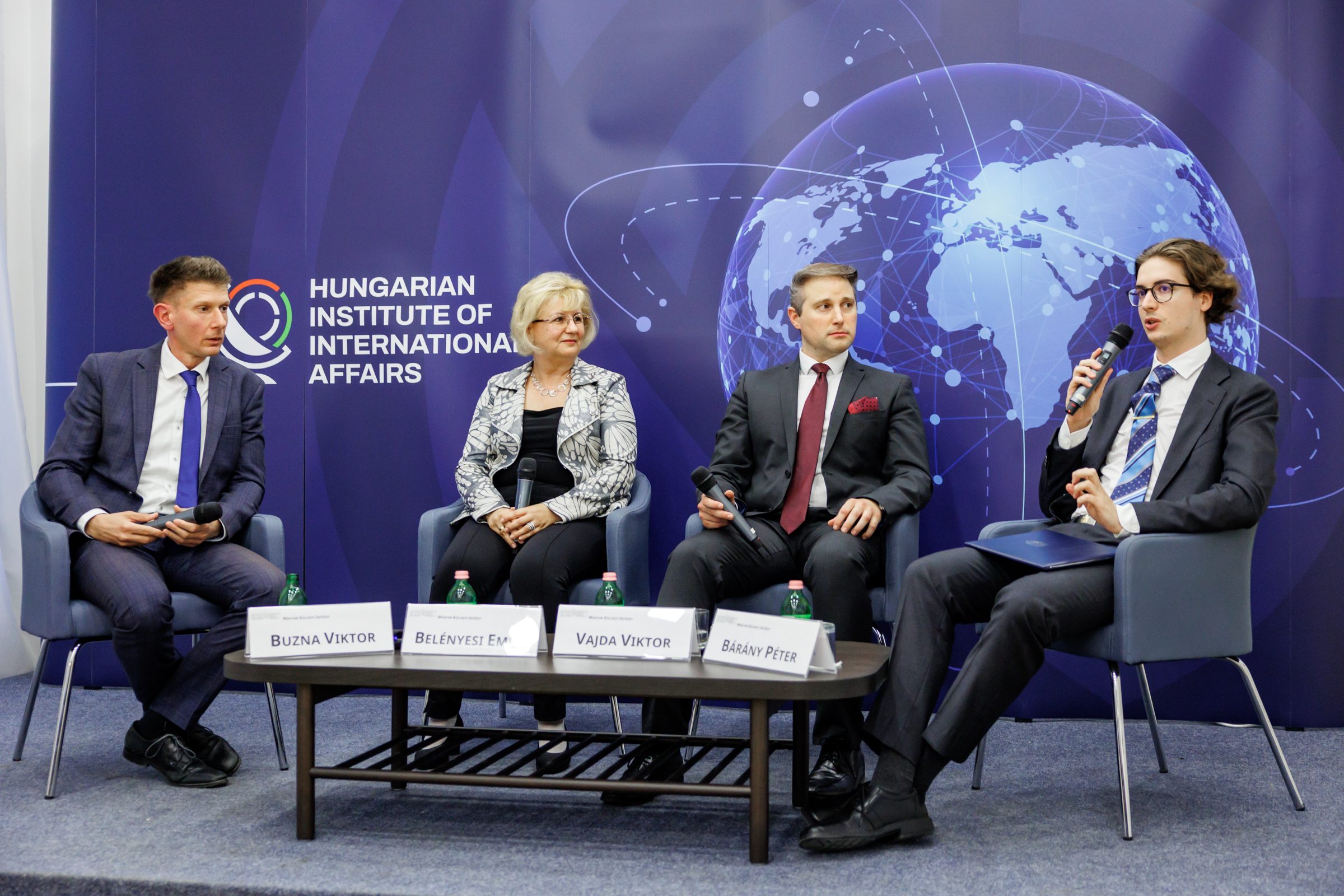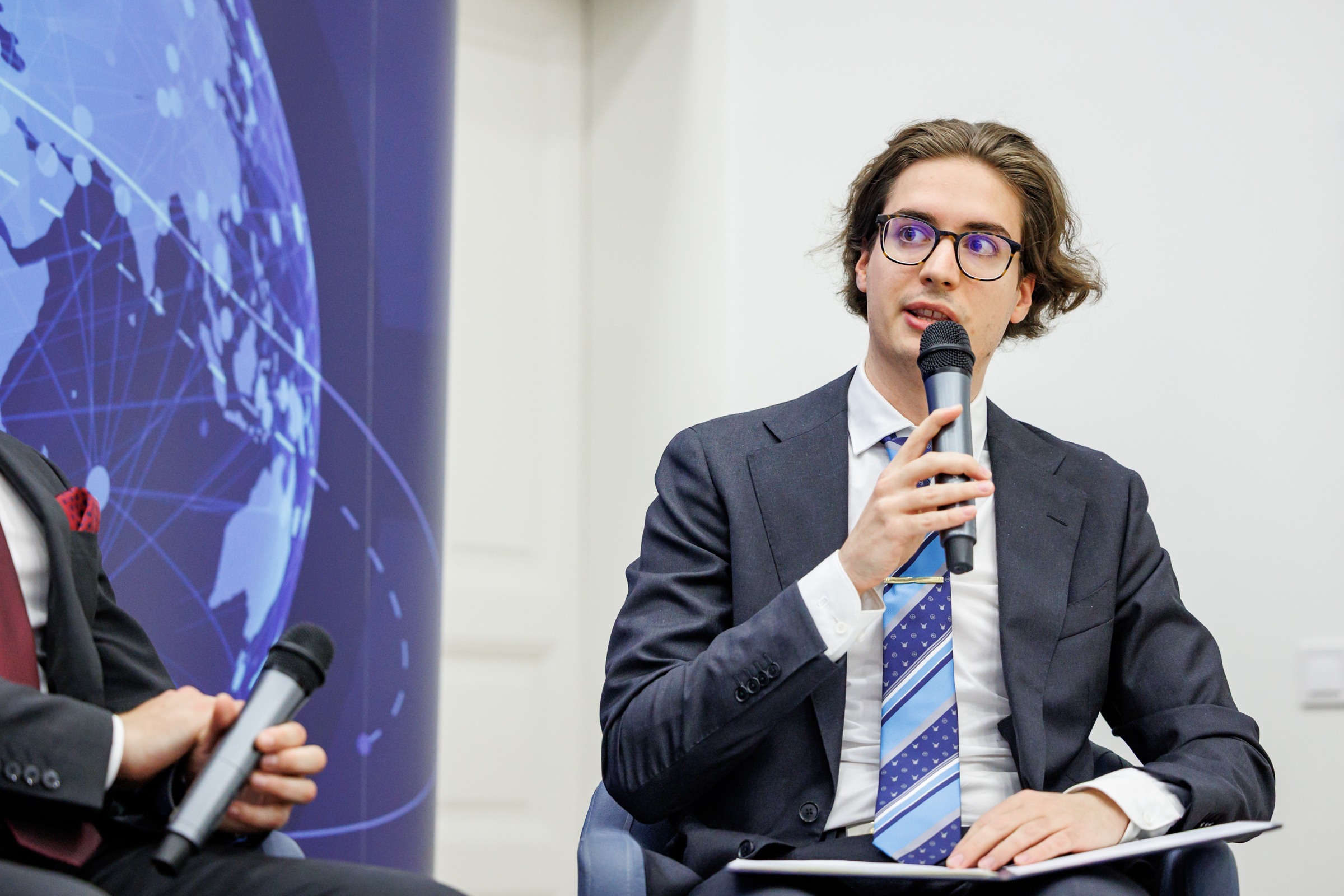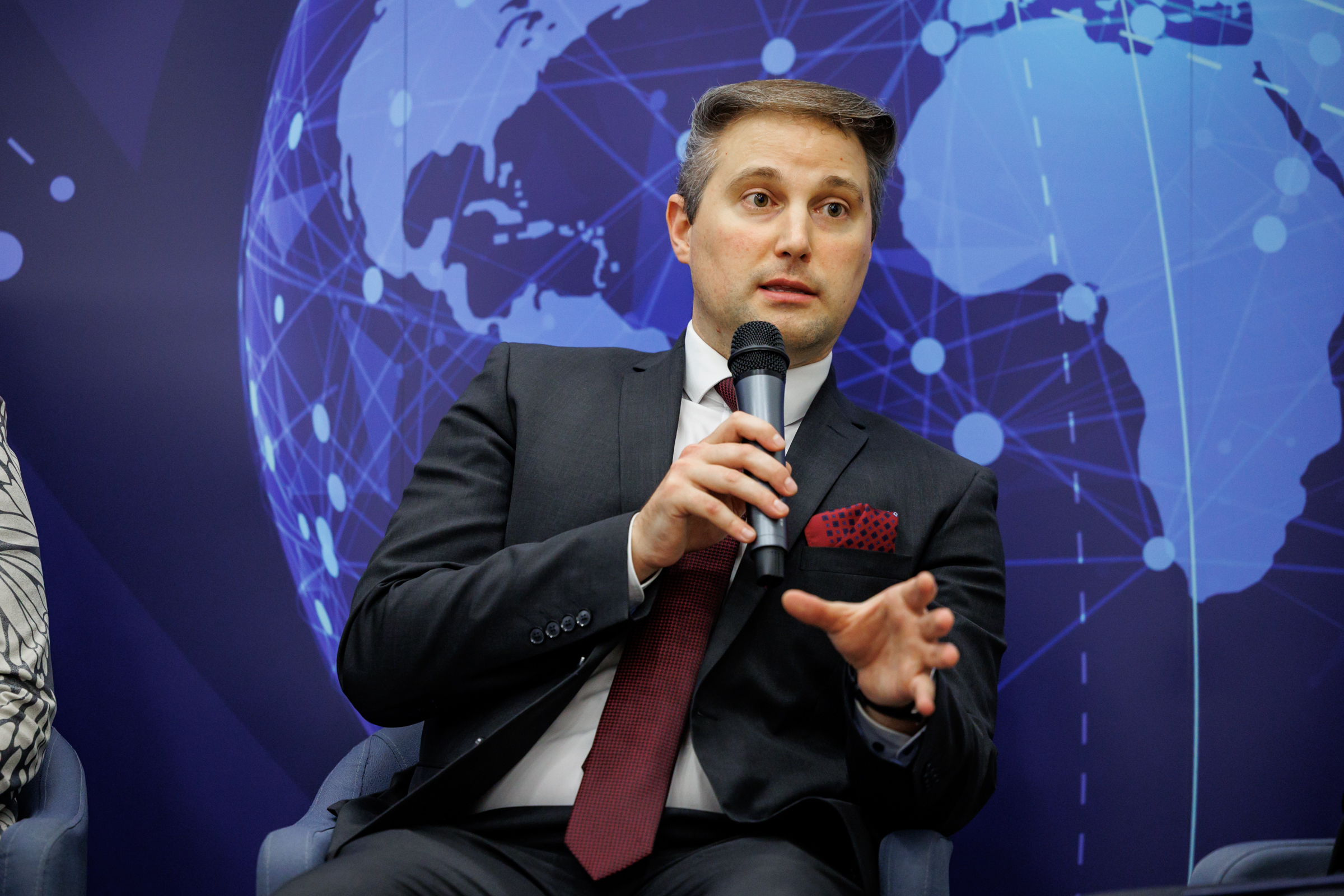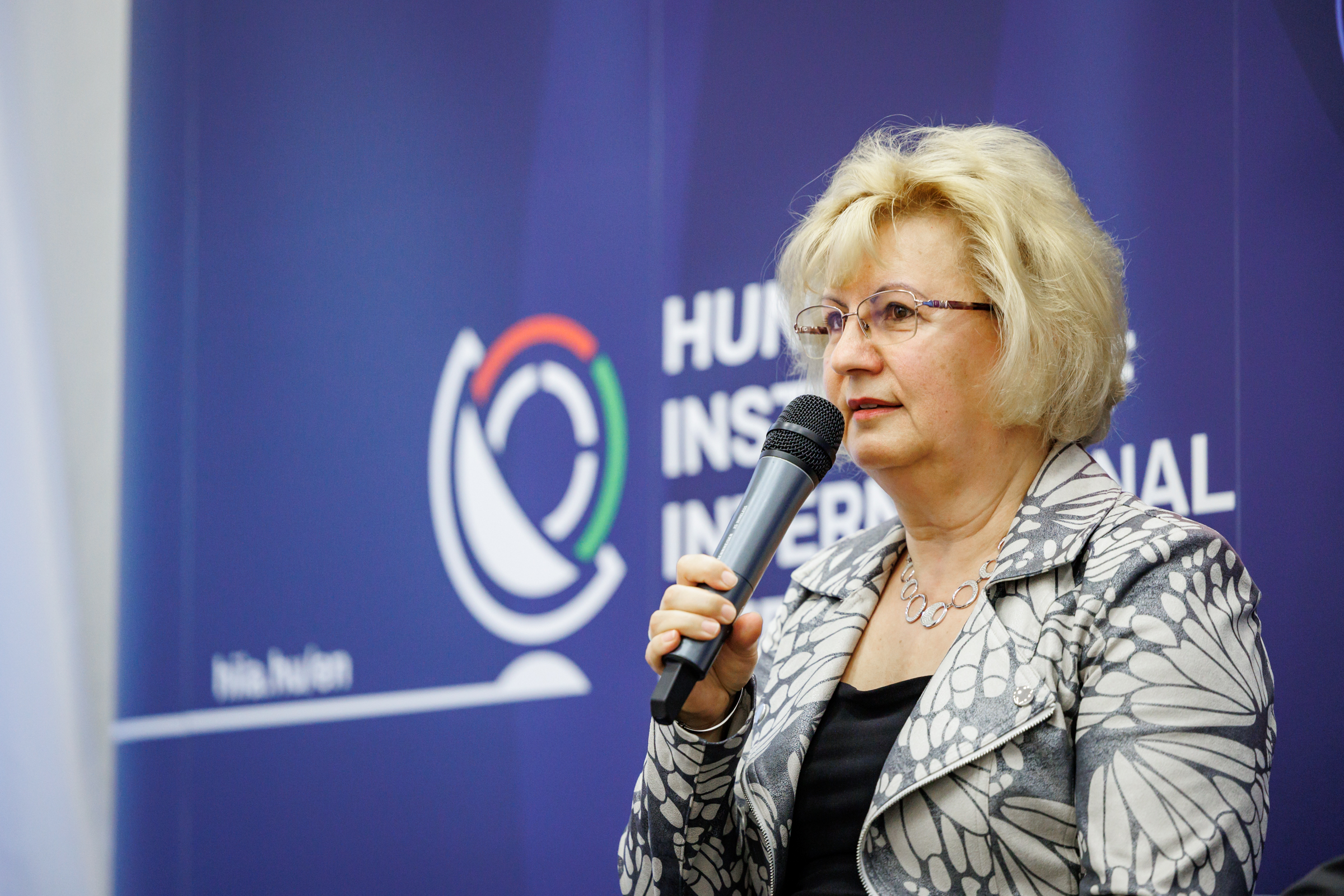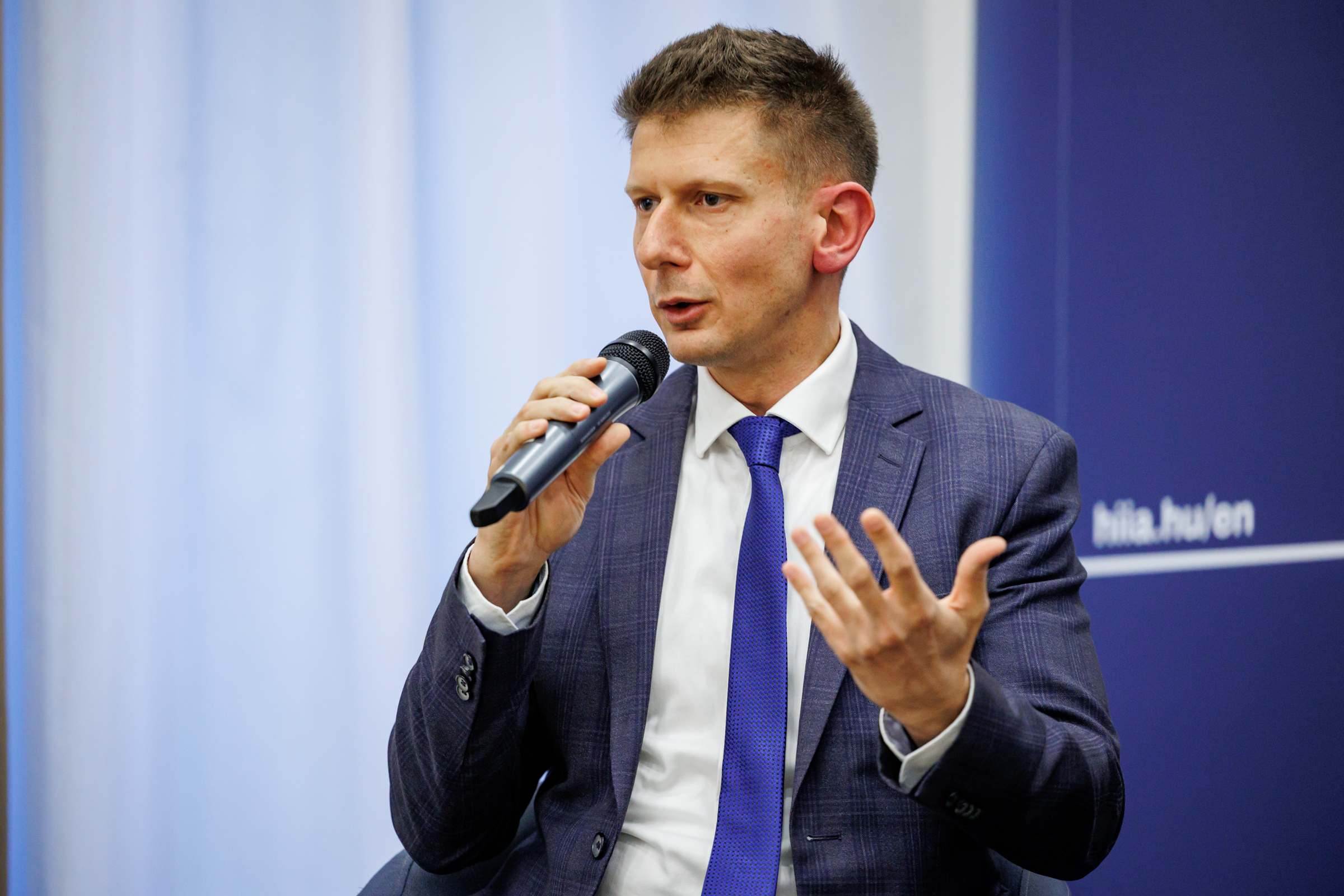On October 7, 2025, the Hungarian Institute of International Affairs (HIIA) held a roundtable discussion titled, “AI and the Nation-State: Lessons from Hungary’s Strategy” . The panelists included dr. Viktor Vajda, Deputy Managing Director of the John von Neumann Nonprofit Public Benefit Ltd.; Dr. habil. Emese Belényesi , Associate Professor at the National University of Public Service and Viktor Buzna, Senior Research Fellow at the Hungarian Institute of International Affairs. The discussion was moderated by HIIA Research Fellow Péter Bárány.
The discussion focused on national strategies for artificial intelligence (AI), the European regulatory environment, and Hungary’s competitiveness opportunities. Viktor Vajda emphasized that AI represents one of the most important breakout points for Hungary’s competitiveness, providing space for the full realization of the country’s intellectual capital. He noted that Hungary’s AI strategy forms part of the four pillars underpinning the national competitiveness policy and is reviewed annually to ensure its relevance.
Emese Belényesi highlighted the role of higher education, which, in her view, should not only teach students how to use AI but also how to apply it meaningfully and responsibly. Hungarian universities at the moment employ three main approaches to AI use by students: full support, restriction, or finding a balanced middle ground.
Viktor Buzna outlined the three-dimensional challenge system posed by AI—geopolitical, competitiveness-related, and social—stressing that the EU must find a balance between regulation and innovation, as excessive norm-setting could slow European progress. He added that Hungary’s proactive strategy offers significant advantages in this context but also entails responsibility.
The experts discussed the European Union’s new AI Act, which, according to Emese Belényesi, is primarily value-driven and only secondarily aimed at enhancing competitiveness. Viktor Vajda pointed out that if Hungary can provide the most supportive environment for market actors issuing certifications for high-risk AI systems, these companies will conduct a significant part of their European operations in Hungary. This would position the country as the “AI gateway of Europe,” attracting investment and innovation activities.
The participants agreed that Hungary’s geographic location and human capital could offer strategic advantages in AI development. Looking ahead, the goal of the national AI strategy is for at least 2.5 million Hungarians to acquire AI literacy by 2030, while the country integrates into supercomputing infrastructures through initiatives such as the Levente Program and the Hungarian AI Factory Antenna project.

